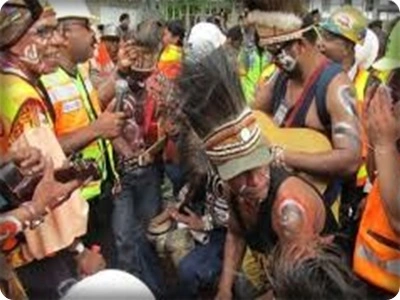Indigenous rights have been a pressing issue around the world for centuries. Historically, indigenous communities have faced marginalization, discrimination, and loss of land and resources. However, in recent years, there has been an increased global awareness of the importance of protecting indigenous rights. This blog post will explore the international support for indigenous rights and shed light on the efforts made by various organizations and countries to address these crucial issues.
Section 1: Recognizing Indigenous Rights
Before delving into international support for indigenous rights, it is essential to understand what exactly these rights entail. Indigenous rights encompass a range of fundamental human rights that are specific to indigenous communities, including the right to self-determination, land rights, cultural preservation, language revitalization, and more. These rights are grounded in international law, primarily through the United Nations Declaration on the Rights of Indigenous Peoples (UNDRIP) adopted in 2007.
Section 2: The Role of International Organizations
Numerous international organizations play a vital role in advocating for indigenous rights globally. One such organization is the United Nations Permanent Forum on Indigenous Issues (UNPFII), established in 2000. The UNPFII provides a platform for dialogue between indigenous representatives and member states to discuss issues affecting indigenous communities worldwide.
Additionally, non-governmental organizations (NGOs) like Cultural Survival actively work towards indigenous empowerment and advocacy. They raise awareness about human rights violations against indigenous peoples through publications, media campaigns, and direct support aimed at addressing socioeconomic challenges faced by these communities.
Section 3: Supportive Legislation by Countries
Many countries have taken significant steps towards supporting indigenous rights through legislation. Canada’s adoption of the Indian Act in 1876 was a crucial milestone as it recognized certain legal obligations towards First Nations peoples. Similarly, countries like New Zealand with its Treaty of Waitangi and Australia’s Native Title Act have made progress in addressing indigenous land rights and self-determination.
In Latin America, countries such as Bolivia and Ecuador have enshrined the rights of indigenous peoples in their constitutions. These legal frameworks aim to safeguard indigenous cultures, territories, and promote political participation within the broader society.
Section 4: Land Restitution and Resource Rights
One of the most critical issues faced by indigenous communities is the loss of ancestral lands and resources. Many countries are recognizing the importance of land restitution as a means to restore justice to indigenous peoples. Brazil’s Yanomami Park and Peru’s recognition of Ashaninka territory are examples of efforts made by governments to return land to its rightful owners.
Furthermore, securing resource rights for indigenous communities is crucial for economic self-sufficiency. In some cases, partnerships between indigenous groups and governments or private entities have been formed to ensure fair benefit-sharing arrangements regarding natural resources found on indigenous lands.
Section 5: Indigenous Language Revitalization
Preserving languages is essential for maintaining cultural heritage within indigenous communities. Recognizing this, several countries have implemented language revitalization programs aimed at supporting linguistic diversity. For instance, New Zealand has set up Te Taura Whiri i te Reo Māori (The Māori Language Commission) to promote the use of the Māori language in various sectors.
In Canada, initiatives like the Aboriginal Languages Initiative fund projects that focus on preserving and revitalizing Indigenous languages across different regions. These efforts contribute towards ensuring that future generations can speak their native languages proudly.
Section 6: Addressing Health Disparities
Indigenous communities worldwide face significant health disparities compared to non-indigenous populations due to various factors such as limited access to healthcare services, cultural barriers, discrimination, etc. International organizations like the World Health Organization (WHO) acknowledge this issue and work with governments to develop policies that address these disparities.
Efforts are being made to engage indigenous communities in the development and implementation of culturally appropriate healthcare practices. For example, New Zealand’s Whānau Ora approach focuses on holistic health and emphasizes local community involvement to address the unique health needs of Māori.
Section 7: Education and Empowerment
Education plays a crucial role in empowering indigenous communities, preserving cultural identity, and fostering socioeconomic development. Various countries have implemented educational programs that incorporate indigenous knowledge and languages into the curriculum. In Australia, the Deadly Dilly program aims to improve education outcomes for Aboriginal students through cultural integration and community engagement.
Moreover, scholarships and funding opportunities targeted towards indigenous students help promote higher education access and bridge the education gap experienced by many indigenous communities.
Conclusion:
International support for indigenous rights has gained significant momentum over the years. Through legislation, advocacy, land restitution efforts, language revitalization initiatives, healthcare reforms, educational programs, and more – progress is being made towards achieving justice and equality for indigenous peoples globally. However, much work remains to be done to ensure that these rights are fully realized and respected. It is essential for individuals, organizations, governments, and international bodies to continue collaborating in solidarity with indigenous communities to create a world where their rights are protected, their cultures celebrated, and their voices heard.



